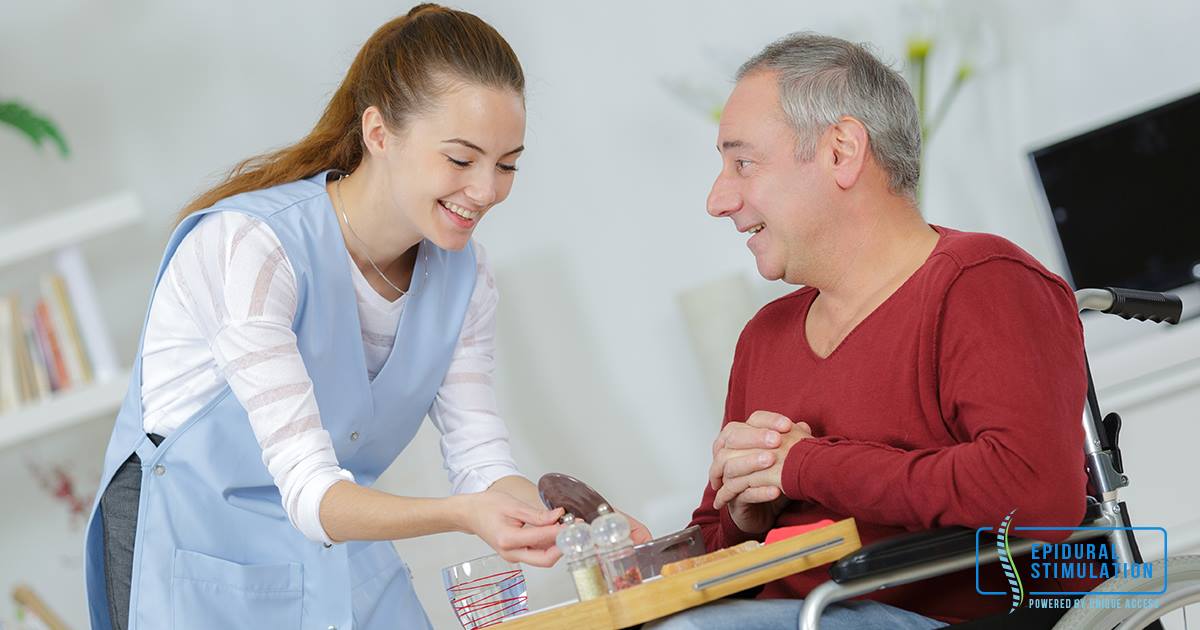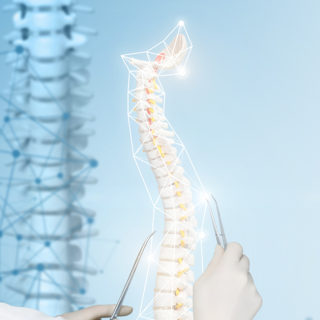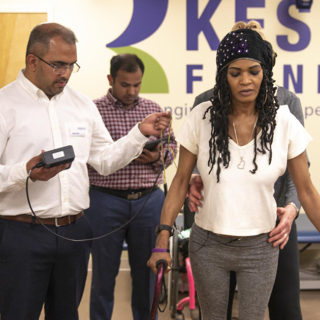A serious injury to the spinal cord can often become a life-changing event. When it comes to spinal cord injury treatment, medical care and the physical challenges that arise from this type of injury, patients may feel as though they have little or no control. However, one important lifestyle aspect that spinal cord injury patients can more easily take control of is their diet and nutrition. Having the right diet is vital for wellbeing as well as helping to reduce the risk of medical complications.
Why Is Diet So Important for Spinal Cord Injury Patients?
Everyone should try and eat healthily and follow recommended nutritional advice. However, individuals with a spinal cord injury should take extra care when it comes to considering a healthy diet, due to the higher risk of medical complications that can arise from a lack of good nutrition.
A poor diet for people with a spinal cord injury could lead to medical complications such as;
- Risk of developing pressure sores
- Higher risk of osteoporosis
- Increased risk for obesity, diabetes and increased cholesterol
- Weight and fitness issues that can affect mobility and independence
- Neurogenic bowel and bladder problems.
Furthermore, a healthy diet with foods that are rich in nutrients can help to provide energy and increase immune function to help individuals to live a more productive life.
Considerations For A Spinal Cord Injury Diet
Individuals with a spinal cord injury who want to make changes to their diet should always consult a medical professional for advice and a tailored programme suited to their weight and lifestyle. However, the following information provides general guidance to help lessen the risk of some of the medical complications that are associated with spinal cord injuries.
Weight
A spinal cord injury can result in a change of body composition such as reduced muscle tissue. As a result, the healthy weight guidelines must be adjusted for people with spinal cord injuries. Typically for those with paraplegia, it will be 5-10% less than the guidelines and 10-15% less for those with tetraplegia. However, everyone is different, and it is important to confirm what your ideal healthy weight is with your medical practitioner.
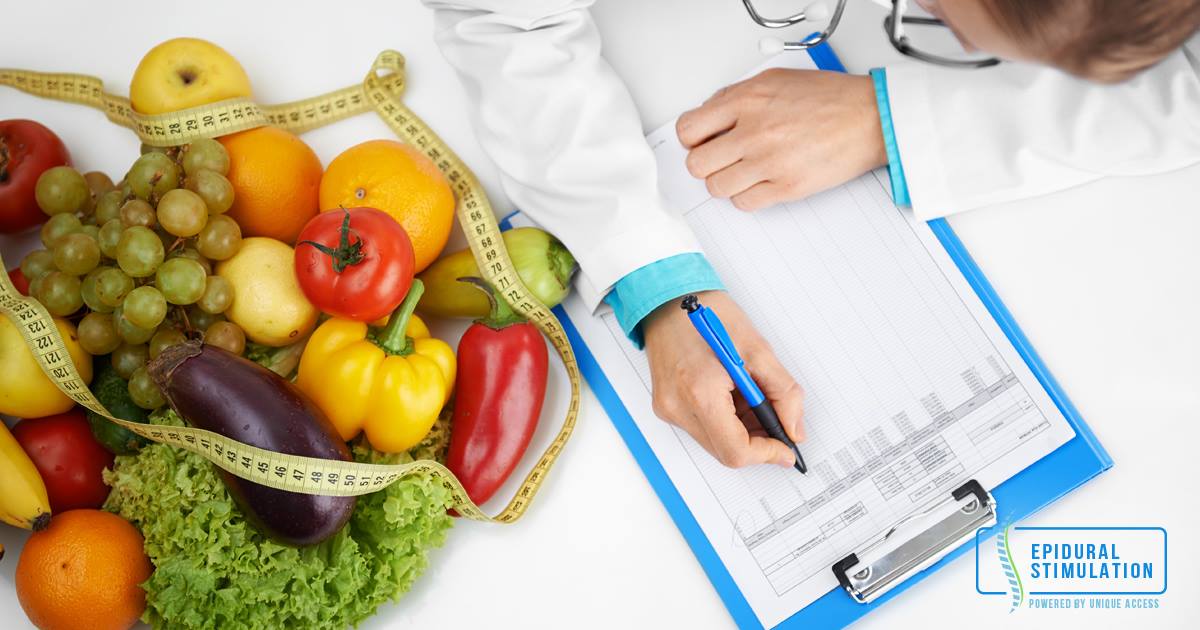
Maintaining a healthy weight is important for spinal cord injury patients
Similarly, it is likely that those with a spinal cord injury will have a lower metabolic rate due to denervated muscle. This means there may need to be a modification in consumption, with smaller portions recommended, as the body may need fewer calories for energy.
Maintaining a healthy weight and metabolic rate is vital to help reduce the risk of diabetes, heart disease and other problems that are associated with obesity. Regular exercise is also crucial to keep active and to increase the metabolic rate.
Neurogenic Bowel
It can be common for people with a spinal cord injury to have difficulties with regulating their bowels. A healthy diet can help to manage the symptoms. For example, fibre is a key aspect of bowel regulation. It is recommended to have 30g of fibre a day to help stools move through the bowel. However, for some, having more than 20g of fibre per day can increase the likelihood of constipation. For this, individuals should increase their fibre intake gradually and assess their reaction.
Good sources of fibre include; whole wheat bread, legumes and beans, fruit and vegetables as well as whole grain cereals and popcorn.
Drinking plenty of water is also recommended to make stools softer and easier to pass. Individuals should aim to drink 1.5 litres a day.
Pressure Sores
To help with wound healing, it is essential to have plenty of protein in the diet. Protein not only helps to prevent pressure sores but it can also help to heal existing ulcers. Many people struggle to get enough protein in their diet, so it is well worth having high-protein snacks, such as nuts, to hand.
Eating regularly is important to prevent skin breakdown while making sure each meal has a variety of nutrients, vitamins and minerals. A doctor may also recommend a multivitamin in some cases.
Another critical aspect of preventing pressure sores it to drink plenty of water to ensure the skin is hydrated.
Urinary Tract Infections
Individuals with a spinal cord injury are also at increased risk for urinary tract infections (UTIs). It is important to drink plenty of water so that urine is light in colour. However too much water can lower sodium in the blood which can cause confusion, cramping and seizures, so it is vital to ensure there are adequate mineral salts in a personalised spinal cord injury diet.
Cranberry juice is also known to help prevent UTIs by lowering the levels of bacteria in the urinary tract. A glass of pure cranberry juice up to three times a day may help. However, cranberry extract supplements are not recommended for people with a spinal cord injury. Again, it is wise to check with a medical professional before making significant adjustments to your diet.
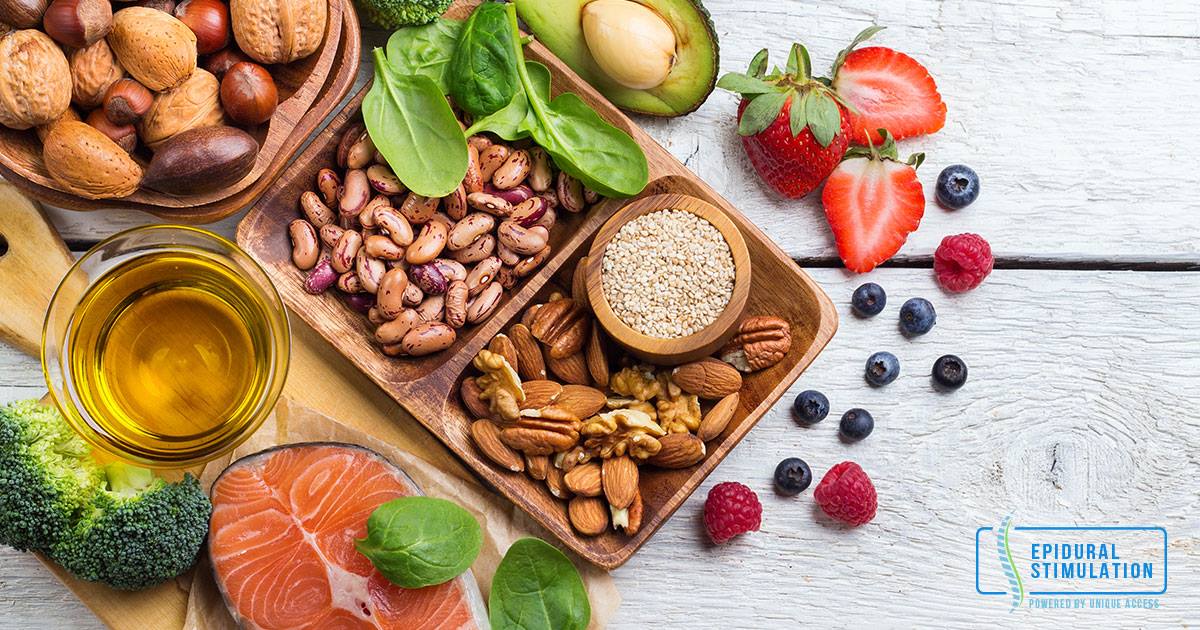
Good nutritional advice should be followed by individuals with a spinal cord injury
Ten Top Tips For A Diet For A Spinal Cord Injury Patient
- Watch portion sizes and be mindful of eating, stopping when you feel full. Eating while watching TV or doing another activity can cause you to consume more than you need.
- Opt for low-fat, high-fibre foods. Whole grains will usually have more fibre, so make the switch for your bread and cereal choices.
- Plan meals ahead to avoid you choosing unhealthy fast-food options when you’re hungry.
- Always have a healthy snack such as fruit or nuts available to ward off hunger pangs.
- Make sure your plate has a healthy variety of vegetables, fibre-rich grains and protein.
- Stick to a weighing schedule, so you are always on top of your weight and health.
- Make water the drink of choice. Sugary beverages have lots of calories which can quickly eat up all of your daily calorie needs without providing any of the nutrients you need.
- Exercise regularly, it helps to increase the metabolic rate, burn calories and provides mood-boosting endorphins, so it is good for your health and wellness.
- Eat three meals a day to keep you energised throughout the day.
- Limit high-fat fried foods and choose lower-calorie, leaner choices.









